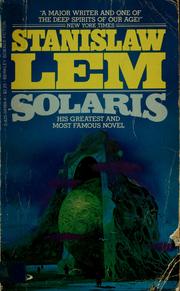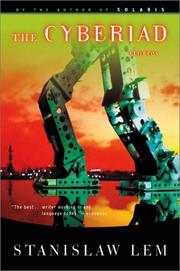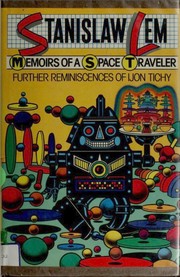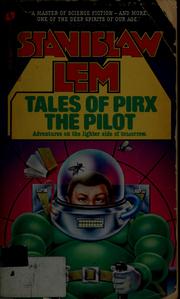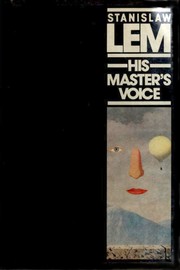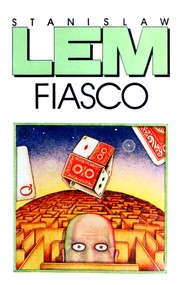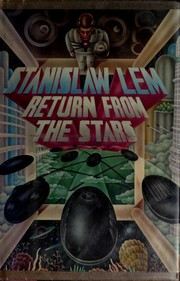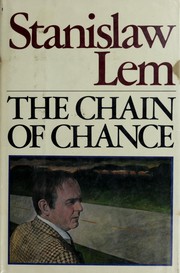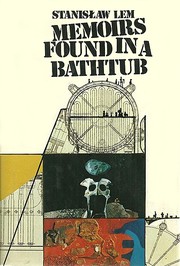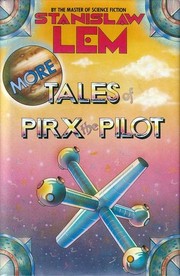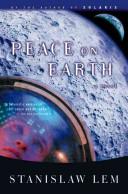Stanisław Herman Lem (12 September 1921 – 27 March 2006) was a Polish author known for his contributions to science fiction, philosophy, and literary criticism. Born in Lwów, Poland (now Lviv, Ukraine), Lem initially pursued medical studies, which, though unfinished due to fears of military conscription and discomfort with medical practice, laid the groundwork for his scientifically rigorous and philosophically rich writing. His early experiences during World War II, including surviving with false papers to avoid the Nazi Lwów Ghetto, deeply influenced his worldview.
Lem's literary career began in 1946 with publications in various genres, including poetry and science fiction. His writings explore complex themes such as the nature of intelligence, human limitations, the challenges of communicating with alien entities, existential despair, and the implications of technological advancements. Notable works include Solaris, which delves into the difficulties of understanding an alien intelligence, His Master's Voice, focusing on humanity's struggle to decipher an extraterrestrial message, The Invincible, a narrative about a spaceship encountering self-replicating machines, and The Cyberiad, offering a satirical view of a mechanical universe.
His works have been translated into over 50 languages, with sales exceeding 40 million copies worldwide. Known for elaborate neologisms and intricate wordplay, Lem's writing posed significant translation challenges. Several of his works have been adapted for film and television, including Solaris (1972, by Andrei Tarkovsky, and 2002, by Steven Soderbergh). Lem's writings are recognised for their philosophical depth, imaginative scope, and incisive critique of humanity's relationship with technology and the cosmos, often blending satire and humour. He was critical of American science fiction, often expressing dissatisfaction with its lack of intellectual depth and commercial focus, advocating for more innovative storytelling.
Beyond fiction, Lem authored texts on futurology, literary criticism, and philosophy. His seminal work, Summa Technologiae (1964), discussed future technological and social developments, addressing themes such as virtual reality, cognitive enhancements, molecular nanotechnology, AI, technological singularity, and the moral-ethical implications of advanced technologies. Lem also experimented with metafiction in works like A Perfect Vacuum, which consists of reviews of nonexistent books.
Stanisław Lem
×Close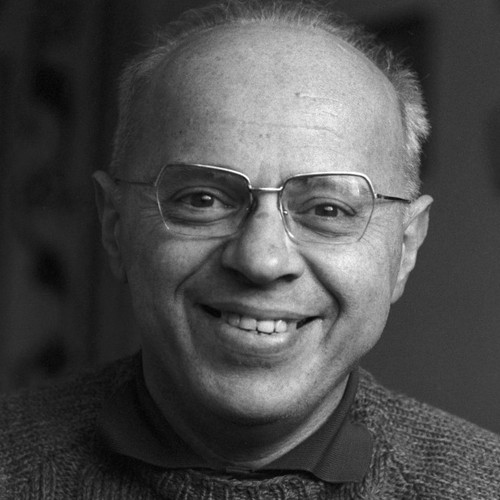
Polish science fiction author, philosopher and futurologist, studied medical doctor (1921–2006)
| Born | 12 September 1921 |
| Died | 27 March 2006 |
267 works Add another?

Most Editions
Most Editions
First Published
Most Recent
Top Rated
Reading Log
Random
Stanisław Lem
×Close
Polish science fiction author, philosopher and futurologist, studied medical doctor (1921–2006)
| Born | 12 September 1921 |
| Died | 27 March 2006 |
Subjects
Polish Science fiction, Fiction, science fiction, general, Fiction, Slavic philology, Continental european fiction (fictional works by one author), Polish Authors, Science fiction, Fiction, general, Technology and civilization, History and criticism, Polish Fantasy fiction, Translations into English, Interviews, Philosophy, Polish fiction, Imaginary books and libraries, Literature, Modern Civilization, New York Times reviewed, Reviews, Translations into Russian, Correspondence, Science Fiction, Astronauts, Authors, polishPlaces
Poland, Alpha Centauri, Carthage, Costa Rica, Earth, Italy, Lʹviv (Ukraine), Milan, Naples, New York, Outer Space, Planet Eden, Planet Solaris, Polish fiction, The universePeople
Stanisław Lem, Alonso, Antonio, Ariel, Caliban, Ceres, Ferdinand, Gonzalo, Hal Bregg, Igon Tichy, Iris, Juno, Klaupacious, Kris Kelvin, Michael Kandel, Miranda, Nazis, Prospero, Sade marquis de (1740-1814), Sebastian, Stanisław Lem (1921-), Stanisław Lem (1921-2006), Stanisław Mrozek, Sycorax, TrurlTime
20th century, The Future, 1939, 1950-, 21st century, 32nd century, Occupation, 1939-1945, the universeID Numbers
- OLID: OL29655A
- Amazon ID: B000AQ3P7Y
- BookBrainz: f3f33f3b-beae-4ca9-9085-fc4d21fa7d5d
- GoodReads: 10991
- ISNI: 0000000121340125
- Integrated Authority File (GND): 118571419
- IMDb: nm0501015
- Inventaire: wd:Q6530
- Library of Congress Names: n79100400
- LibraryThing: lemstanislaw
- MusicBrainz: 7302fd79-fb9a-452e-b404-220fa94e6196
- Storygraph: b6368eeb-fd3a-4da5-b0f7-35c66ce3c5f2
- VIAF: 56612733
- Wikidata: Q6530
Links outside Open Library
Alternative names
- Lem, Stanisław
- Stanislaw Lem
- Stanislav Lem
- Stanislas Lem
- Станислав Лем
- スタニスワフ・レム
- スタニスラフ・レム
- 斯坦尼斯瓦夫·莱姆
- 斯坦尼斯瓦夫·萊姆
- 스타니스와프 렘
- Stanisław Estel
- Irving T. Creve
- Richard Popp
- Professor A. S. Tarantoga
- Prof. A. S. Tarantoga
- Profesor A. S. Tarantoga
- Professor Thomas V. Warren
| March 25, 2025 | Edited by huginn4126 | Added new photo |
| March 25, 2025 | Edited by huginn4126 | Added new photo |
| March 25, 2025 | Edited by huginn4126 | Added new photo |
| March 25, 2025 | Edited by huginn4126 | Added new photo |
| April 1, 2008 | Created by an anonymous user | initial import |


